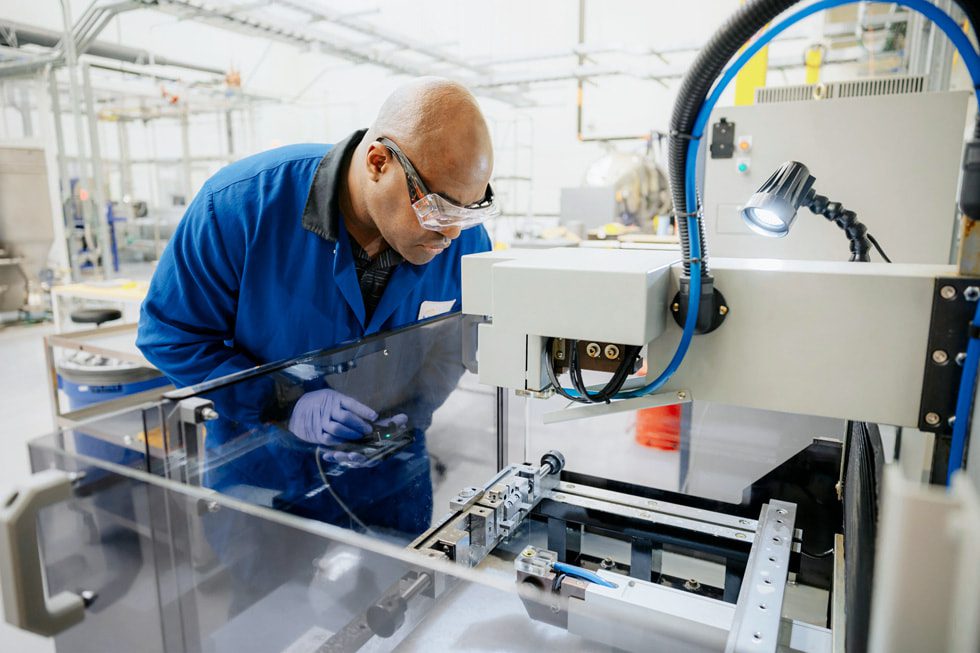
Foxconn recalls Chinese staff from India, creating ripples in Apple’s ambitious plans to expand iPhone manufacturing in the South Asian nation. Over 300 Chinese engineers and technicians have left Foxconn’s Indian facilities in the past two months, raising concerns about production delays for the upcoming iPhone 17. This unexpected move aligns with geopolitical tensions and China’s efforts to limit technology and labor transfers. How will this affect Apple’s supply chain? What does it mean for India’s manufacturing ambitions? This article dives into the how-to questions surrounding this development, offering insights into its implications for Apple, Foxconn, and the global tech industry.
Key Takeaways
- Foxconn has recalled over 300 Chinese engineers from its India iPhone plants.
- The move may disrupt Apple’s iPhone 17 production timeline.
- China’s restrictions on labor and technology exports are a key factor.
- India’s growing role in iPhone manufacturing faces challenges.
- Apple aims to produce 20% of global iPhones in India by 2026.
Why Foxconn Recalls Chinese Staff from India?
Contents
- 1 What Triggered the Recall?
- 2 How Does China’s Policy Impact Global Supply Chains?
- 3 What Challenges Does Foxconn Face in India?
- 4 How Can Apple Mitigate Production Delays?
- 5 Why Is India a Key Player in Apple’s Strategy?
- 6 How Can India Overcome This Setback?
- 7 What Role Do U.S.-China Relations Play?
- 8 How Does India-China Tension Factor In?
- 9 What Strategies Can Companies Like Apple Adopt?
- 10 How Can Foxconn Adapt to the Talent Shortage?
- 11 How Might Prices Be Affected?
- 12 When Can Consumers Expect the iPhone 17?
- 13 1. Why did Foxconn recall Chinese staff from India?
- 14 2. How many Chinese workers left Foxconn’s India plants?
- 15 3. How will this impact iPhone 17 production?
- 16 4. What is Apple’s manufacturing goal in India?
- 17 5. How does this affect India’s manufacturing ambitions?
- 18 6. What role do geopolitical tensions play?
- 19 7. Can Foxconn replace the recalled workers?
- 20 8. Will iPhone 17 prices increase due to this?
- 21 9. How is China restricting technology transfers?
- 22 10. What can Apple do to mitigate these disruptions?
What Triggered the Recall?
Foxconn, Apple’s largest iPhone manufacturer, began recalling Chinese engineers and technicians from its Indian facilities around May 2025. Reports suggest Beijing’s informal directives to curb technology and skilled labor exports to countries like India and Vietnam played a role. This aligns with China’s strategy to maintain its dominance in global manufacturing amid U.S.-China trade tensions. Over 300 workers have returned to China, leaving mostly Taiwanese support staff in India.
How Does China’s Policy Impact Global Supply Chains?
China’s restrictions extend beyond personnel. The country has reportedly delayed exports of critical smartphone manufacturing equipment to India. This could hinder the training of local workers and slow technology transfers. As a result, Apple’s goal to produce 80% of U.S.-bound iPhones in India by late 2026 may face delays. The move highlights the geopolitical tug-of-war affecting global tech supply chains.
Listicle: 3 Key Reasons for the Recall
- Geopolitical Strategy: China aims to retain skilled labor and technology to maintain manufacturing dominance.
- U.S.-China Trade Tensions: Tariffs and restrictions push companies to diversify, prompting China’s response.
- India’s Visa Restrictions: Strained India-China relations and strict visa rules may have contributed.
How Is Apple’s iPhone 17 Production Affected?
What Challenges Does Foxconn Face in India?
The recall of Chinese technicians disrupts Foxconn’s operations at a critical time. Foxconn’s Indian plants, particularly in Tamil Nadu, are ramping up for iPhone 17 production. The loss of experienced engineers could reduce assembly line efficiency, though product quality is expected to remain unaffected. Foxconn planned to hire 1,000 additional local workers by mid-July 2025, but replacing skilled Chinese staff may prove challenging.
How Can Apple Mitigate Production Delays?
Apple relies on Chinese expertise for its supply chain. To counter delays, Apple could:
- Train local Indian workers faster.
- Recruit engineers from Taiwan or Vietnam.
- Invest in automation to reduce dependence on skilled labor.
Table: iPhone Production in India
| Aspect | Details |
|---|---|
| Current Production Share | 20% of global iPhones |
| Target by 2026 | 80% of U.S.-bound iPhones |
| Investment by Foxconn | $2.56 billion in Devanahalli plant |
| Workforce | ~40,000 local employees |
| Models Planned | iPhone 17, iPhone 17 Pro, iPhone 17 Pro Max, iPhone 17 Air |
How Does This Impact India’s Manufacturing Ambitions?
Why Is India a Key Player in Apple’s Strategy?
India has emerged as a manufacturing hub, producing one-fifth of global iPhones in just four years. Apple’s push to diversify from China stems from U.S. tariffs and geopolitical risks. Foxconn’s investments, including a $1.48 billion unit in Tamil Nadu, underscore India’s role. However, the recall of Chinese workers could slow this progress.
How Can India Overcome This Setback?
To maintain its manufacturing momentum, India could:
- Relax visa rules for skilled foreign workers.
- Invest in technical training programs.
- Offer incentives to attract global manufacturers.
Listicle: 4 Ways India Can Strengthen Its Manufacturing Hub
- Skill Development: Launch programs to train local workers in advanced manufacturing.
- Policy Reforms: Simplify visa processes for foreign experts.
- Infrastructure Investment: Build more industrial parks like ESR in Tamil Nadu.
- Incentives: Provide subsidies for tech firms to set up operations.
How Are Geopolitical Tensions Shaping This Move?
What Role Do U.S.-China Relations Play?
U.S. President Donald Trump’s push for tariffs, including a 25% tariff threat on Apple products made abroad, has pressured companies to diversify. China’s response—restricting labor and equipment exports—aims to keep manufacturing within its borders. This creates a complex challenge for Apple and Foxconn.
How Does India-China Tension Factor In?
India and China share strained relations, with direct flights suspended and strict visa rules for Chinese nationals. These tensions may have contributed to the recall. Despite recent diplomatic engagements, India’s bans on Chinese apps like TikTok signal ongoing challenges.
Table: Geopolitical Factors Impacting Foxconn’s Operations
| Factor | Impact |
|---|---|
| U.S. Tariffs | Push Apple to diversify manufacturing |
| China’s Restrictions | Limit labor and equipment exports |
| India-China Relations | Strict visa rules hinder Chinese workers |
| Beijing’s Strategy | Aims to retain tech dominance |
How Can Businesses Navigate Supply Chain Disruptions?
What Strategies Can Companies Like Apple Adopt?
To address disruptions like the Foxconn recall, businesses can:
- Diversify supplier bases across multiple countries.
- Invest in local talent development.
- Use technology to streamline operations.
How Can Foxconn Adapt to the Talent Shortage?
Foxconn could:
- Hire engineers from Vietnam or Taiwan.
- Partner with Indian tech institutes for training.
- Accelerate automation in its plants.
Listicle: 5 Tips for Managing Supply Chain Risks
- Diversify Suppliers: Spread manufacturing across countries like India, Vietnam, and Taiwan.
- Invest in Training: Build a skilled local workforce.
- Leverage Automation: Use robotics to reduce labor dependency.
- Monitor Geopolitics: Stay updated on trade policies and tensions.
- Build Resilience: Create contingency plans for disruptions.
What Does This Mean for iPhone Consumers?
How Might Prices Be Affected?
If production delays occur, iPhone 17 costs could rise due to inefficiencies. India’s higher labor costs compared to China may also impact pricing. However, Apple’s focus on quality ensures no compromise on product standards.
When Can Consumers Expect the iPhone 17?
Apple plans to release four iPhone 17 models in 2025: iPhone 17, iPhone 17 Pro, iPhone 17 Pro Max, and iPhone 17 Air. Delays in India could push back availability, especially for U.S. and Indian markets.
Summary
The recall of over 300 Chinese staff from Foxconn’s Indian facilities poses challenges for Apple’s iPhone 17 production and India’s manufacturing ambitions. Driven by China’s restrictions on labor and technology exports, this move highlights the complexities of global supply chains amid U.S.-China and India-China tensions. Apple and Foxconn can mitigate impacts by training local workers, recruiting from other regions, and investing in automation. India, meanwhile, must enhance its workforce skills and policies to remain a competitive manufacturing hub. For consumers, potential delays and cost increases loom, but Apple’s commitment to quality remains strong.
FAQs
1. Why did Foxconn recall Chinese staff from India?
China’s informal directives to limit technology and labor exports likely prompted the recall, aligning with efforts to retain manufacturing dominance.
2. How many Chinese workers left Foxconn’s India plants?
Over 300 Chinese engineers and technicians have returned to China in the past two months.
3. How will this impact iPhone 17 production?
The recall may reduce assembly line efficiency, potentially delaying production timelines for the iPhone 17.
4. What is Apple’s manufacturing goal in India?
Apple aims to produce 80% of U.S.-bound iPhones in India by late 2026, with India currently accounting for 20% of global output.
5. How does this affect India’s manufacturing ambitions?
The loss of skilled workers could slow India’s growth as a tech manufacturing hub, requiring faster local training and policy reforms.
6. What role do geopolitical tensions play?
U.S.-China trade tariffs and India-China strained relations, including visa restrictions, contribute to the recall and supply chain challenges.
7. Can Foxconn replace the recalled workers?
Foxconn may hire engineers from Taiwan or Vietnam and train local workers to fill the gap.
8. Will iPhone 17 prices increase due to this?
Delays and higher labor costs in India could lead to price increases, though Apple prioritizes maintaining quality.
9. How is China restricting technology transfers?
China has delayed exports of critical manufacturing equipment and restricted skilled labor movement to countries like India.
10. What can Apple do to mitigate these disruptions?
Apple can diversify suppliers, invest in local training, and adopt automation to reduce reliance on foreign expertise.
STAY AHEAD OF THE CURVE WITH THE LATEST TECH INSIGHTS AND UPDATES! FOR MORE TECH-RELATED NEWS, VISIT TECHBEAMS.



